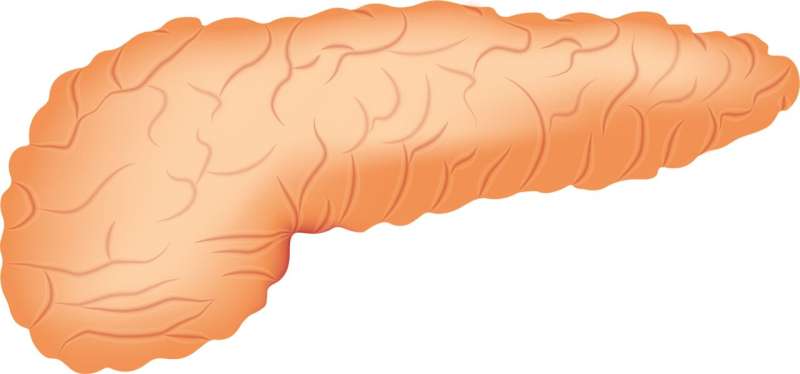Credit: Pixabay/CC0 Public Domain
The xCT protein, which plays an important role as a transport molecule in cells, could play a part in cancer treatment in the future, researchers at Vrije Universiteit Brussel (VUB) have discovered. Their work is the result of a collaboration between the research groups of neuroscientist Ann Massie of the Laboratory of Neuro-Aging & Viro-Immunotherapy and pancreatic cancer expert Ilse Rooman of the Laboratory for Medical and Molecular Oncology.
The team's research is published in the journal Brain, Behavior, and Immunity.
Their recent studies on mice show that targeting the protein can not only reduce tumor growth, it can also help regulate the inflammatory response and improve mood.
By genetically removing the protein in mice with pancreatic cancer, the researchers found that as well as reducing the tumor load, it also reduced the inflammatory reaction in the body and brain. In turn, this had a positive impact on the immune system and conditions such as anxiety and depression.
"This research shows that manipulating xCT can go further than simply inhibiting the tumor growth," says Olaya Lara, Ph.D. researcher in the lab of Prof Massie. "It also has beneficial effects on other aspects of the illness, such as mood, which could mean a comprehensive approach to the treatment of pancreatic cancer."
Pancreatic cancer is one of the most malignant forms of cancer, with very low survival rates. The findings from this research offer prospects for further research and clinical studies on people.
More information: Olaya Lara et al, Compartmentalized role of xCT in supporting pancreatic tumor growth, inflammation and mood disturbance in mice, Brain, Behavior, and Immunity (2024). DOI: 10.1016/j.bbi.2024.03.001
Journal information: Brain, Behavior, and Immunity
Provided by Vrije Universiteit Brussel
























